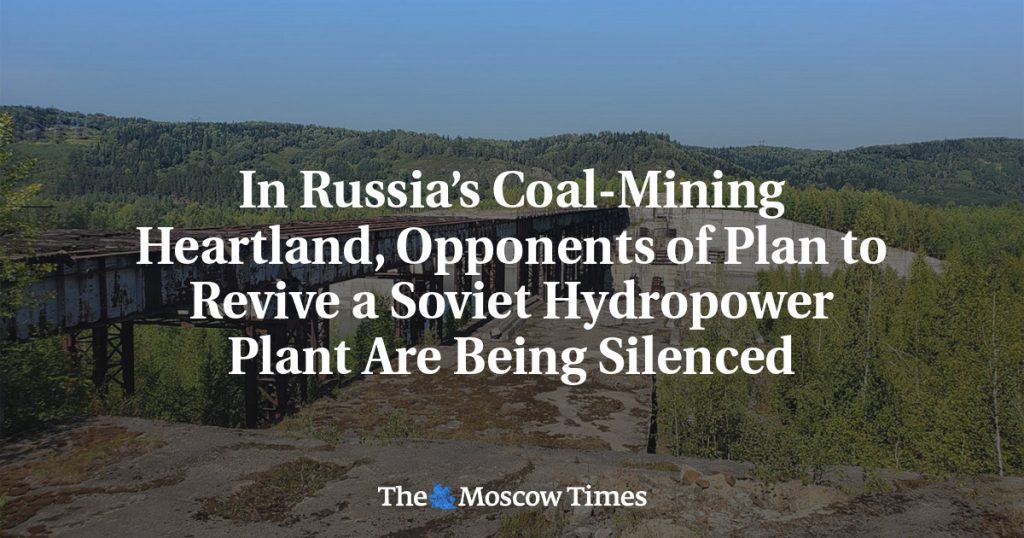The Krapivinskaya hydropower plant in Siberia’s Kemerovo region, a half-finished Soviet project from the 1980s, is now being considered for completion as the Russian government aims to diversify the local economy away from coal. Big businesses like aluminum giant Rusal see hydropower as a way to reduce carbon emissions and align with international environmental standards. However, local activists have raised concerns about the environmental impact of the project and have faced intimidation for speaking out against it.
The construction of the Krapivinskaya plant was stalled in 1989 due to funding issues and disagreements over environmental impact, but recent interest from companies like RusHydro and Rusal have reignited plans to complete the project. The local government in Kuzbass argues that the plant will improve water quality, form strategic reserves, and create new jobs, but some residents remain skeptical and have turned to legal means to halt the project. Activists opposing the project have faced obstacles, including being shut out of public hearings and facing police pressure.
Ecologists like Yevgeny Simonov argue that painting the Krapivinskaya plant as a low-carbon energy source is misleading, as the construction required for the plant could release methane, impacting the local ecosystem and wildlife. Concerns have been raised about the flooding required for the project, which would affect nature reserves, cemeteries, and force residents to relocate. The environmental impact assessment has been deemed inadequate by experts, who fear the loss of habitats and fish stocks in the area.
Financial struggles and Western sanctions have added complexity to the completion of the Krapivinskaya plant, with uncertainties about funding and market access for products like aluminum. Public dissent against the project faces further challenges as Russia cracks down on activism, with some activists reportedly being forced to sign military contracts to avoid jail. However, some experts believe that the project could be safely mothballed, providing recreational opportunities for the region while reducing environmental impact.
As the situation around the Krapivinskaya hydropower plant remains uncertain, activists continue to resist the project while stakeholders navigate financial challenges and regulatory hurdles. The completion of the plant could have significant environmental consequences, impacting the local ecosystem and forcing residents to relocate. While businesses like Rusal aim to reduce their carbon footprint through projects like this, public opposition and market uncertainties may affect the future of the project. It remains to be seen how the push for renewable energy in Kemerovo will evolve in the face of environmental concerns and public resistance.


